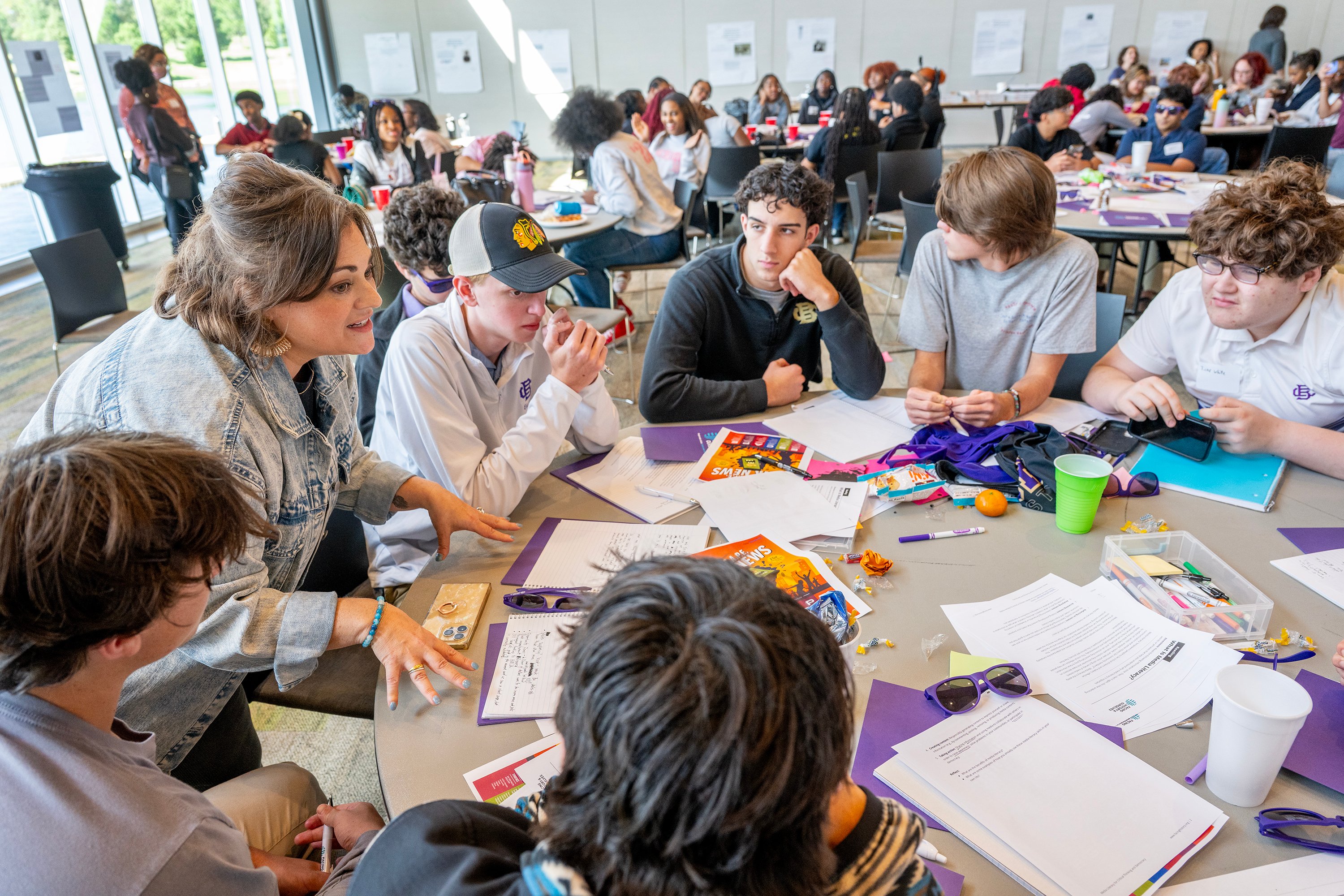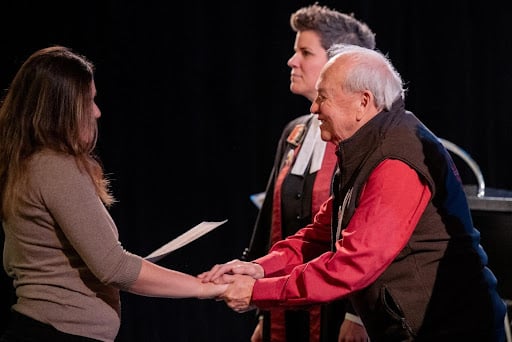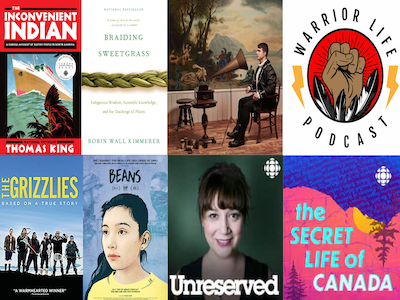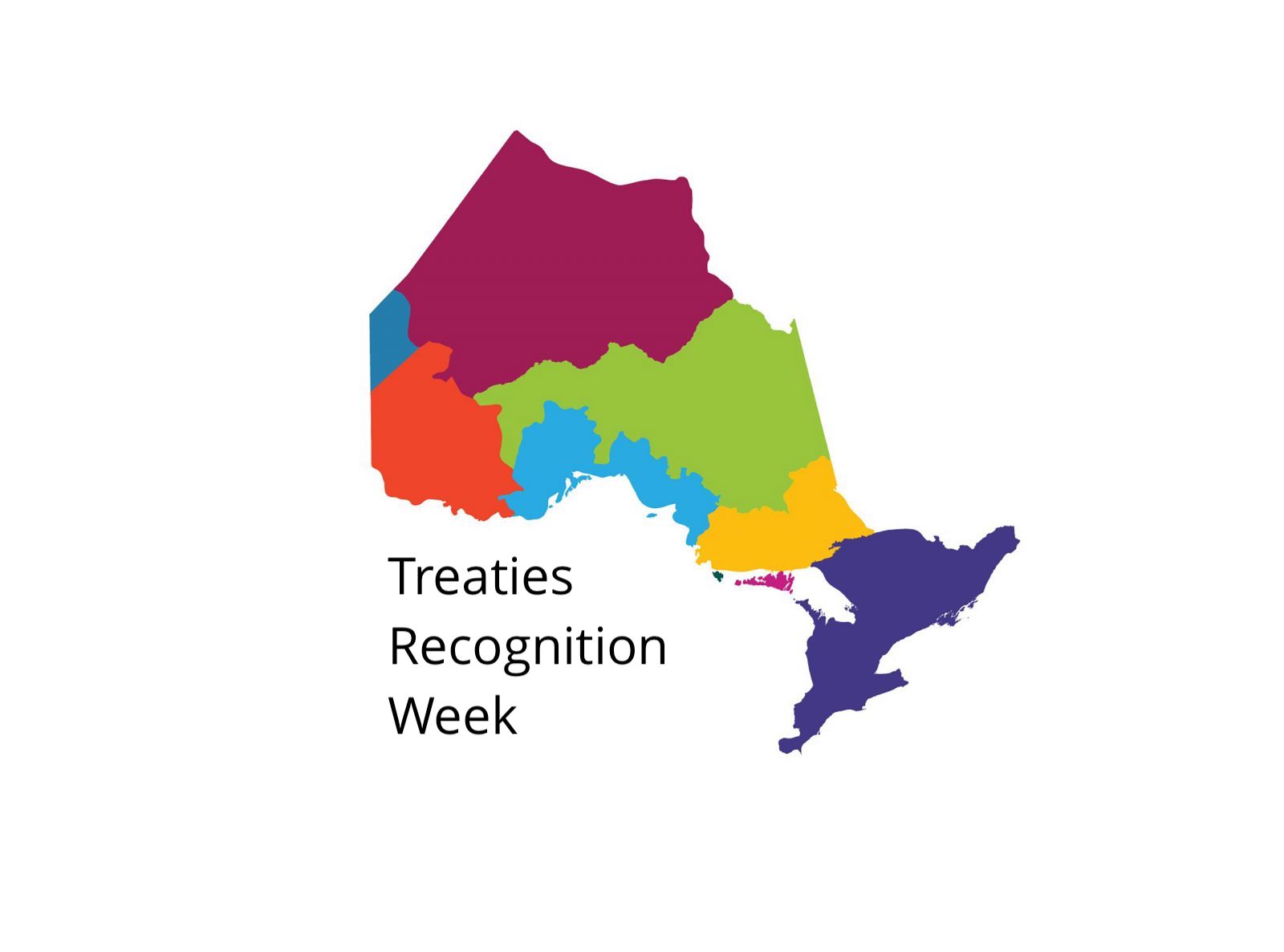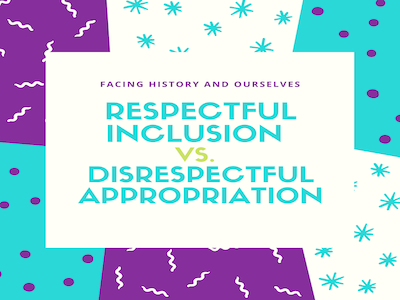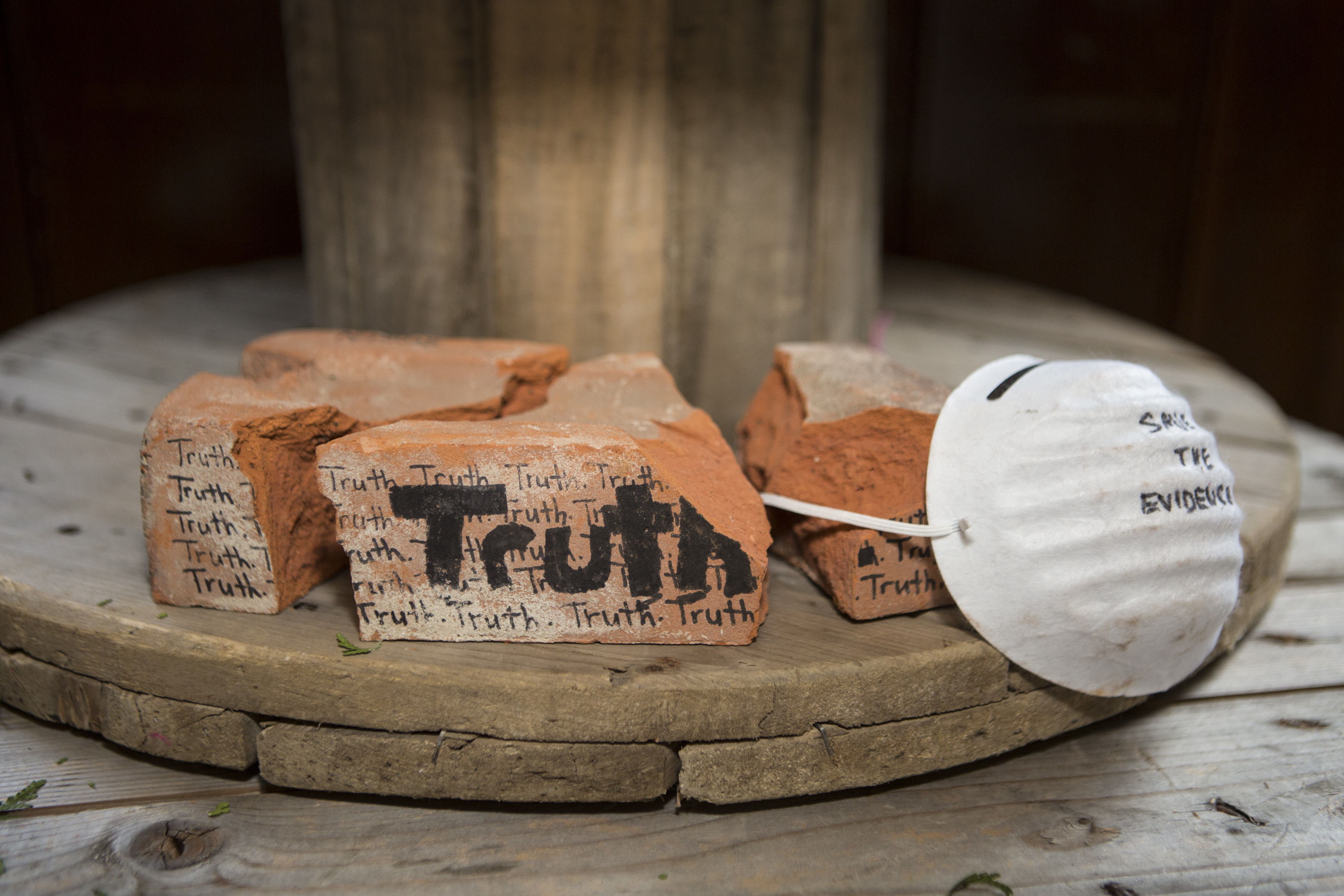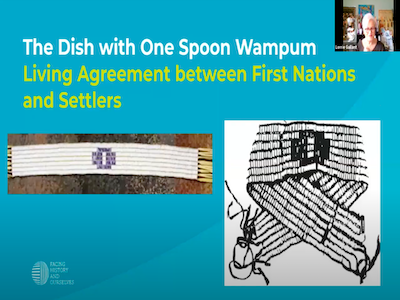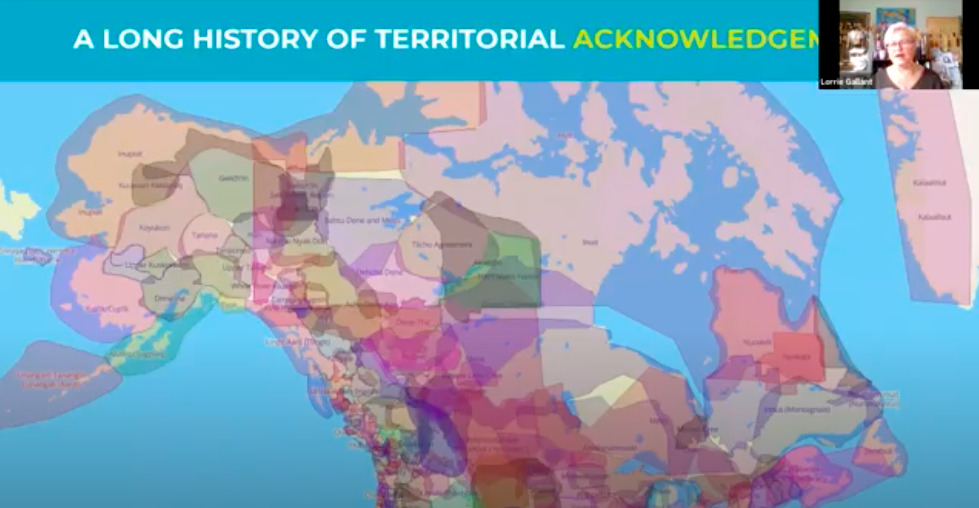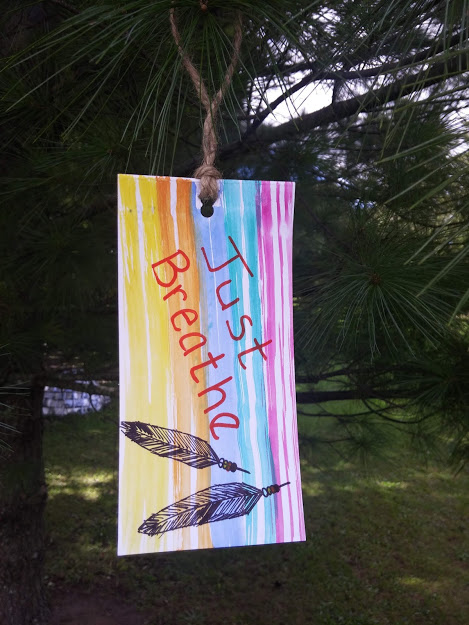As educators, we understand that learning goes beyond the curriculum. It's about creating a safe, respectful, and inclusive environment where students can bring their full selves and be respected and valued by everyone. In English courses like Contemporary First Nations, Inuit, and Métis Voices, we ask students to engage with difficult truths and stories that can carry significant emotional, cultural, and intergenerational weight.
Building a Safe Space: Relationships as a Foundation for Reconciliation
Posted by Cheryl Payne on November 26, 2025
Topics: ELA, Indigenous, English Classroom, A View from the Classroom
"As Rabbi Jonathan Sacks has written, there is a difference between history and memory: “History is information. Memory, by contrast, is part of identity… Memory is the past as present, as it lives on in me.” Survivors, witnesses, the descendants of those who lived through [histories], and all those who learn about [these histories] today face the question of how to remember the past and how that memory might shape our understanding of ourselves and our present world" (Holocaust and Human Behavior, Facing History and Ourselves, 2017. p. 598).
In his testimony sharing,teaching and life, residential school survivor, and self-described victor, Theodore Fontaine frequently explored how memory lives on in the present: His family’s love, the horrors of residential schooling, the joys of friendship, and the healing power of connection shaped and reshaped his life, his teachings and his works. In so sharing, those who listened became witnesses to his experiences, and many were transformed as a result.
The following interviews build on our event, Learning from Theodore Fontaine: A Call for Lasting Change, and draw on the voices of additional friends and colleagues whose life and work act as living examples of Theodore’s teachings, his legacy and calls to action. We hope that these interviews will prompt deeper learning from Theodore and inspire readers to consider how his testimony and legacies might shape our understanding of ourselves and the choices we make.
To watch his recorded testimony, please check out our blog, Honouring and Remembering Chief Theodore Niizhotay Fontaine.
As you read these interviews:
- What insights do you gain about Theodore’s legacy and his hopes for the future?
- What questions do the interview responses raise for you about yourself or the world around you?
- How do the responses extend or challenge your thinking about the possibilities for living with trauma, hope and healing?
- How are you reflecting on the possibilities for healing, hope and courage after trauma, as you read these reflections?
|
For Ted, real reconciliation came through everyday acts of generosity and kindness. Our breakfast meetings were often punctuated by Ted recognizing passers-by and stopping them for a quick hello and always a joke... He connected, related, and celebrated their shared existence, and thereby cultivated knowledge and nurtured learning..." - Andrew Woolford |
Topics: Survivor Testimony, Canada, Residential Schools, Canadian History, Indigenous History, Indigenous, stolen lives, student activism, Action
June is Indigenous History Month but it is my hope that we are always aware of the Indigenous people around us. Some of us may not share the same experiences in life, but whether you are Canadian or Indigenous or both, we have a shared history, from different perspectives.
Topics: Teaching Resources, Indigenous History, Indigenous, Indigenous Peoples' Day, Indigenous Awareness Month, Indigenous History Month
Resources for Treaties Recognition Week in Ontario
Posted by Andrew McConnell, Jasmine Wong & Erez Zobary on October 27, 2021
We are all treaty people, and it is important that we understand the role and significance of treaties and our responsibility to these important agreements. Across Canada, treaty days offer opportunities for celebration, teaching and improving our understanding of treaties. In Ontario, this takes place during the week of November 1-5.
In preparation for this week, we have worked with educator Andrew McConnell (Anishinaabe/English, member of Nipissing First Nation) to publish a list of resources to support you with your learning and planning.
Topics: Canada, Indigenous History, Indigenous, Treaty, Decolonizing Schools, Treaties Recognition Week
Respectful Inclusion vs. Disrespectful Appropriation
Posted by Lorrie Gallant, Jasmine Wong, Erez Zobary on July 5, 2021
June was Indigenous History Month. Throughout the entire year, we recognize how important it is to be striving towards meaningful inclusion of Indigenous histories, knowledges, ways of being and contributions.
Topics: Teaching Resources, Indigenous History, Culturally Responsive and Relevant Pedagogy, Indigenous
This is a Moment to Remember, Honour and Take Action
Posted by Leora Schaefer, Jasmine Wong and Erez Zobary on June 1, 2021
We sit with renewed sadness for individuals and communities who have been impacted by residential schools as we mourn the loss of the 215 children whose remains were found buried at the Kamloops residential school. Our hearts are with the Tk'emlúps te Secwépemc First Nation as well as Indigenous children, communities and families across Turtle Island.
This is a time for a collective and national mourning. It is a time for acknowledgement of the ongoing work of survivors’ families and communities for truth, remembrance of loved ones and justice. It is a time for renewed calls for truth seeking, truth telling and collective action.
Topics: Memorials, Restorative Justice, Indigenous
The Dish With One Spoon Wampum (Webinar 2)
Posted by Lorrie Gallant, Jasmine Wong, Erez Zobary on October 29, 2020
This video is the second part in a four part webinar series featuring Jasmine Wong in conversation with Lorrie Gallant. To access Part 1 click here.
Topics: Universe of Obligation, Canada, Canadian History, Indigenous History, Indigenous, stolen lives, Treaty, Facing Canada, Treaties Recognition Week
Territorial and Land Acknowledgements (Webinar 1)
Posted by Lorrie Gallant, Jasmine Wong, Erez Zobary on June 5, 2020
This video is the first part in a four part webinar series featuring Jasmine Wong in conversation with Lorrie Gallant.
This series of blog posts explores stories and teachings that Lorrie Gallant shares about the purpose and importance of territorial acknowledgments and treaties. They are based on a recorded webinar from March 18 2020. Lorrie is a writer, illustrator, storyteller, visual artist, educator, Expressive Arts Practitioner, born and raised on Six Nations of the Grand River Territory in Ontario.
These posts and activities have been written for students to explore as part of a virtual learning community.
Topics: Identity, History, Canadian History, Indigenous History, Indigenous, Grade 10 History, stolen lives, Facing Canada, land acknowledgements, territorial acknowledgement
Honouring Reciprocity and Survivors of Canada’s Residential Schools
Posted by Lorrie Gallant on February 24, 2020
If you have ever travelled to Brantford Ontario Canada, you might have been excited to visit the home of Alexander Graham Bell to learn about the invention of the telephone. You might have come for a hockey tournament and had the privilege of meeting Hockey Legend Wayne Gretzky’s father Walter, who loves hanging out at the rinks. You may have picked up brochures with beautiful pictures of the Grand River or did research about Joseph Brant, who was the negotiator between the Mohawk and British during the American Revolution. But you might not know that Brantford is the home of the first residential school in Canada; that the building still stands with the names of children carved into the bricks and that it is one of the few residential school buildings still standing in Canada.
Topics: Art, Survivor Testimony, Residential Schools, Indigenous History, Culturally Responsive and Relevant Pedagogy, Indigenous, Lesson Ideas, Facing Canada, Creative, Woodland Cultural Centre
Remembering Missing and Murdered Indigenous Women, Girls and Two-Spirited People on October 4th
Posted by Paul Sabyan on October 5, 2019
For the past few years, my school community school community at St. Joseph’s College School in downtown Toronto has recognized October the 4th as a day to honour the Missing and Murdered Indigenous Women, Girls and Two-Spirited People. Since 2017, our school community has worked collectively to use art and activism to spread awareness around this day in hopes of creating change. This is an important issue to us; being a school for girls and young women, gendered violence resonates particularly with our student population.
Topics: Art, Choosing to Participate, Indigenous, student activism, mmiwg

